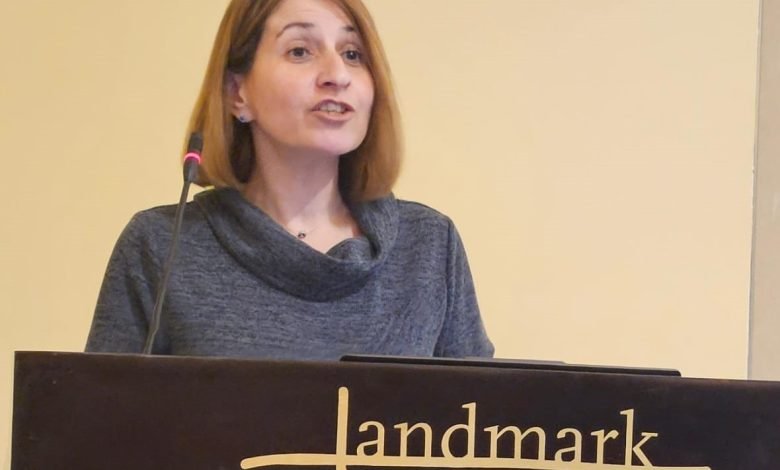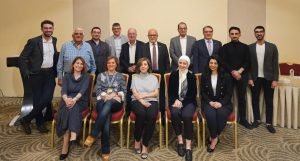
Jordan Daily – Amid rising concerns over childhood hearing impairment, Dr. Rania Abul Rub highlighted, on May 14 at the Rotary Club Amman Cosmopolitan, the urgent need for systemic change in Jordan. Drawing attention to the country’s lack of a comprehensive national screening program, Dr. Abul Rub underscored how these deficiencies are impeding early diagnosis, treatment, and ultimately the futures of countless children.
“Jordan’s situation is alarming,” the audiologist stated. “We lack a unified, mandatory screening system that tests every newborn for hearing problems. Without this, many children with hearing difficulties slip through the cracks, especially in rural and underserved areas where healthcare infrastructure and awareness are limited.” Her remarks come at a pivotal time when early detection is proven to be the most effective tool in preventing lifelong disabilities caused by untreated hearing loss.
Dr. Abul Rub elaborated in a statement that while developed nations implement universal newborn hearing screening, Jordan remains far behind. Some private hospitals perform tests upon request, but the absence of a nationwide policy means that a significant number of children remain undiagnosed in their early years, critical years for speech, language, and social development. Without early intervention, these children face delays in speech development, poor academic progress, and social isolation that can lead to long-term psychological effects.
Dr. Abul Rub urged for urgent collective action: “We must make screening at birth and in schools a national priority. It is not just a medical issue but a social one—every child deserves the chance to develop their potential fully.” She called on organizations, including the Rotary Club, to support initiatives that promote early detection, raise awareness, and provide access to affordable treatment solutions.

Abul Rub emphasized that early detection and intervention can profoundly alter the trajectories of children with hearing impairment. Advances in hearing aid technology have made devices more discreet, connected to smartphones, and widely accessible. However, the main issue remains the identification of children at risk, which involves establishing formal screening protocols across the health and educational sectors.
Highlighting the specific challenges faced in Jordanian schools, Dr. Abul Rub pointed out that noisy classrooms, the physical distance between teachers and students, and inadequate acoustical environments further exacerbate difficulties for hearing-impaired children. These conditions impair their ability to follow lessons, significantly impacting their academic performance and mental well-being.
To address these challenges, she proposed practical solutions such as implementing wireless FM systems within classrooms. These devices transmit the teacher’s voice directly to students’ hearing aids, significantly improving speech clarity amid noisy environments. She stressed that such technology is now affordable and easy to deploy but requires community-wide awareness and training.
Abul Rub called on Jordanian policymakers, educators, and health professionals to prioritize establishing a national screening program. She pointed out that some private schools already require hearing tests for enrollment, but this practice should be expanded nationwide to prevent missed diagnoses.
The hearing specialist also addressed cultural barriers and stigma associated with hearing impairment. She argued that increasing awareness through community education campaigns can help reduce negative perceptions and encourage families to seek early testing and treatment.
Dr. Abul Rub praised modern technological advances in hearing aids, which now come in customizable, stylish designs, easily linked to smartphones, appealing to children and their families. Early support, combined with technological solutions, can significantly improve speech, language, and social skills, ensuring children participate fully in their communities.
Her message resonated strongly with attendees, emphasizing that addressing childhood hearing loss in Jordan requires immediate and sustained efforts from multiple sectors. With proper planning, increased awareness, and technological support, she believes Jordan can overcome these challenges and secure a brighter, more inclusive future for its children.

